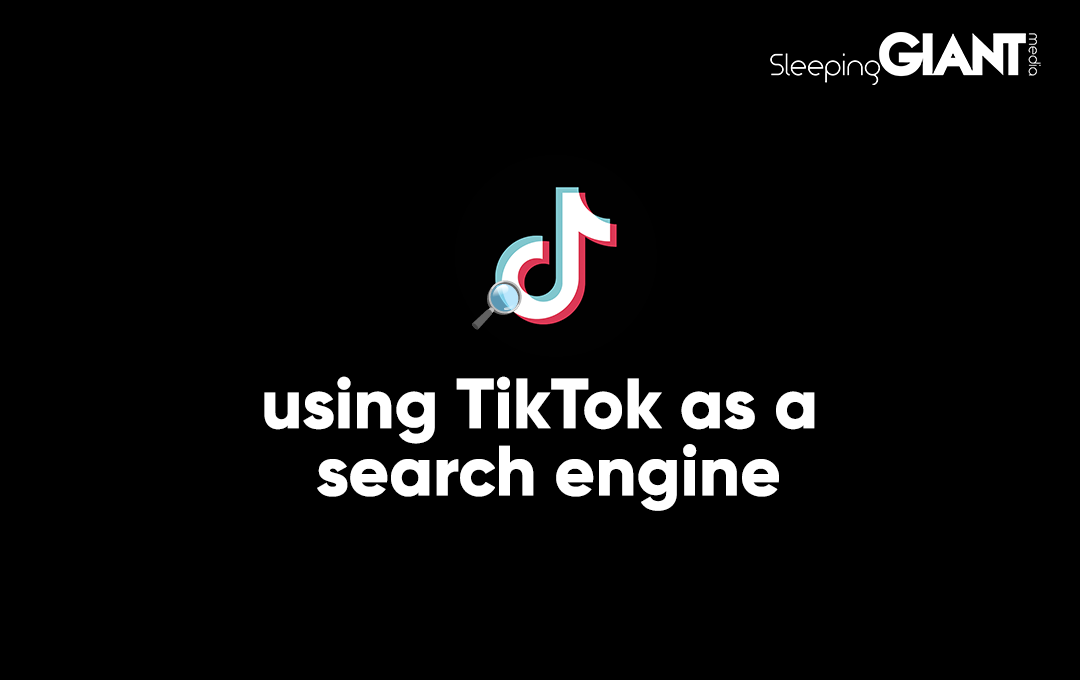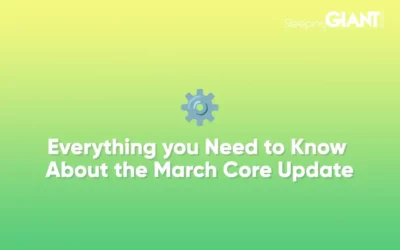
TikTok as a Search Engine: Are You (Mis)Informed?
The rise in TikTok’s popularity as a search engine feels like a natural progression given the recent path of digital. With the app’s introduction of SEO, it’s become the oracle for Gen Z search queries — and when looking at most current internet users’ core values, it’s no surprise really!
Authenticity is the holy grail, the most significant consideration in a user’s decision to interact with creators and online commerce. This is most evident in the recent trend towards ‘de-influencing’, in which creators give candid reviews of products that they refuse to endorse.
The average internet user is much more savvy about the many ways in which they are sold to. They’re aware of what an ad is (and not least because creators now have to state when they’re doing an ad on most platforms), and they know what algorithms do (kind of).
With Google now showing TikTok videos in its own search results, it’s clear that, for many, the video-sharing platform is a go-to for all kinds of questions. Why? And is that a good thing?
Experience is everything
In saturated search engines like Google, it can be difficult to separate genuine and original takes from the swathes of inauthentic, rehashed lists. Even in spite of their quality guidelines – which they’re always building on – there’s a LOT of rubbish out there. There’s no telling whether the information you’re reading is coming from someone that’s actually genuinely experienced the things they’re talking about.
And with the rise in popularity of AI (which we talked about here, by the way), it’s increasingly difficult to know whether what you’re reading was actually written by a human, let alone a human with experience.
TikTok, though, is jam-packed with real experiences. Sure, like any other platform you need to filter through the ads and painful clickbait thumbnails first – that’s to be expected.
In an age of inauthenticity, people are yearning for the opposite – and you find it in spades on a platform that (largely…) offers a level playing field for a range of voices.
Not only can you find one real account of a particular place, phenomenon, experience, or otherwise; you can find multiple. In a few swipes, you’ll be privy to a range of points of view to, in theory, help you make more rounded choices. More on that later.
A picture paints a thousand words, a video paints even more
Another huge reason why the platform is so incredibly popular for use as a search engine is simply because you can fit so much information in.
With a combination of voice and video, one can capture in seconds what a blog on the topic can only hope to take a stab at in thousands of words (depending, of course, on the topic).
Take, for example, the ambience of a restaurant — I could try for hours to find the right words for the way the sconce lights flicker on the green walls and how the bathrooms perfectly meld contemporary with a traditional farmhouse feel. A montage video will do that and more in mere seconds.
Don’t get me wrong: I love words. They have their own time and place. But I do see the merit in TikTok as a searching tool.
Just recently before a trip to Brighton, I went to Google to search for things to do in the area. Immediately, I was overwhelmed by choice: TripAdvisor’s aggregation of reviewed places, TimeOut’s list of 25 things to do, VisitBrighton’s own list, Google’s featured snippet of the most popularly-searched attractions, and more. Frankly, I didn’t feel like trawling through each of these lists — lists which may well have been copies of each other.
When I tried TikTok, though, I found videos of real people who had collaged together snippets of their actual IRL days out in Brighton. I saw clips of cafés, vintage shops, street names, and more, all in under 10 seconds, and got a real sense of where I might like to visit.
In minutes, you can find and save recipes to cook, TV series to watch, books to read, restaurants to eat in, holiday destinations to visit, and DIY tips to try.
Search, delivered to you
The average user spends 95 minutes a day on TikTok — how many of us can say the same for Google? Of course, none of us can (only sometimes when I’m having a health anxiety day and searching ‘electrolyte imbalance’ for the 5th time).
The benefit (and downfall) of TikTok as a search engine is that it’s not just a search engine — it’s a social media platform first and foremost. The search engine part has been co-opted.
The more we use it in this way, the more it delivers to us personalised results. The For You Page becomes a SERP for individuals, sometimes removing the need to actually make a search.
The issue(s) with TikTok as a search engine
TikTok has grown incredibly quickly. Granted, it was founded in 2016, which is a good 7 years ago now — but it gained most of its popularity at the start of the Covid-19 pandemic in 2020.
As people were cooped up in quarantine, they turned to social media platforms in their free time. In the US alone, TikTok saw a 180% growth of users aged 15-25 during that time period.
With fast growth comes teething problems. And, however, open these platforms feel, they’re not immune to systemic issues, either.
Remember that ‘level playing field’ we talked about earlier? There are some quite strong arguments that posit this really isn’t the case. Anyone can create a TikTok account, can make videos, can even generate a following — but not all of them are going to be hugely successful. Others become successful and then are stunted when they say something one user classifies as controversial enough to report.
TikTok’s reporting system has a lot to answer for, and so does its Creator Fund.
A good enough idea, the Creator Fund should mean that people are paid for their work on the app – but there are lots of caveats. YouTube star Hank Green has said that “when TikTok becomes more successful, TikTokers become less successful”, because the fund comes from a finite pool of money. When compared to YouTube’s partner programme, which gives its creators a cut of revenue, it’s easy to see how this method of monetisation quickly falters.
Misinformation
On any social sharing platform, you’ll find misinformation. People can come across very convincingly, no matter how nonsensical their argument or opinion.
Unlike Google’s baked-in quality guidelines, you’re not required to cite anything on TikTok and can even make up sources — after all, very few people are going to leave the app to see if your information checks out. TikTok is built to keep you in the app, on an ever-depleting dopamine hamster wheel. OK, I know that sounds quite “it’s the Matrix, bro”, but it’s also just literally how capitalism works.
With few quality and accuracy regulations, it can actually become a challenge to search for the truth on the app. TikTok says they’re making an effort to counter misinformation, but is it working?
With the democratisation of information, anything can be found and shared. This is both a good and a bad thing.
It can be used for good (like raising awareness about conditions and diseases) and bad (like offering untested remedies and treatments for said conditions and diseases). Quack cures and advice can spread far faster on TikTok than any Google search would allow.
This was no more apparent than at the start of the Covid-19 pandemic. In 2020, a young woman posted a video claiming to have found the cure for the virus, showing her audience how to make it. She said it was hydroxychloroquine, a prescription drug that can only be made in controlled settings and is used to treat malaria, lupus, and rheumatoid arthritis. Certainly not a cure for the coronavirus.
Indeed, NewsGuard found that just under 20% of TikTok results they analysed contained ‘false or misleading claims’ at the time of the US presidential election and vaccine rollout.
Not the whole picture
As we touched on before, no single TikTok video can give you the whole picture. Like with any Google search, it’s a good idea to check multiple sources to know whether any one bit of information is factually accurate.
In a ranking algorithm like TikTok’s, creators often end up confined to their niche. If they sway outside of it, their videos are deranked. In turn, this can lead to creators exaggerating, taking on implicit biases, and even resorting to controversy as a popularity-maker. People don’t just want the truth, after all; we’re morbidly curious creatures that want in on the strange, fringe, and downright immoral.
As you can imagine, the assumption that you’re always getting an authentic experience on TikTok gets dangerous here. Creators are not encouraged to talk in essay formats that cite sources, using rhetorical questions and nuance. This also serves to keep our attention spans low, making us less willing to listen to longer arguments on things that require nuance. And with such immediate responses, stitching, and sharing, it’s easy to see how it quickly becomes a rather dangerous tool.
An echo chamber
TikTok has been open about the fact that it uses a system of collaborative filtering to make recommendations to users, which impacts what they see when they search.
This means it recommends new accounts based on the users followed by the users you already follow. Its algorithm considers the videos you’ve already liked and disliked, users you’ve followed and not followed, and returns results accordingly.
It sounds simple, and it does often work incredibly well at showing us things we’re interested in — but that’s precisely the issue, too. It can quickly become an echo chamber, showing you only limited points of view. A feedback loop is created, wherein you’re only presented with a certain kind of video by a certain kind of creator, leading to a lack of diversity in your feed.
Making the most of the positives
Of course, that’s the dark side of TikTok as a search engine. But there’s also light — and lots of it.
For example, you can use TikTok to learn about things that wouldn’t usually make the news. To educate yourself about real people’s experiences of racism, misogyny, homophobia, and more. To share wellbeing tips without a paywall. To support local businesses. To directly engage with entertainers and creators. To get first-hand accounts of a variety of experiences.
In no sense is it all doom and gloom; like anything, it’s about balance.
If you intend to or are already using TikTok as a searching platform, I say “go for it”. Personally, I love the app for certain kinds of searches.
In a world where it can be all too easy to stubbornly settle on one opinion and stay stuck, it’s important to see ourselves as organisms in a whole – not bricks in a wall. We can grow and question and change. If we use it in the right way, TikTok as a search engine is an excellent tool for growth — and pure fun.
Just be sure you’re aware of its pitfalls, of the dangers of misinformation and bias! Besides, you can always head to Google to check the facts… 😉
Blog
Everything you Need to Know About the March Core Update
We knew it wouldn’t be long before Google released their first core update of...
Giant Wednesday
How To Optimise Images For Websites
Digital Marketing, technology & business insights, how-to's and explainer...
Follow Us
Sign Up For More
Stay up to date with the latest happenings, learnings, events & more with our GIANT Newsletters.
Contact Us
Top Floor, The Civic Centre, Castle Hill Avenue, Folkestone CT20 2QY.




